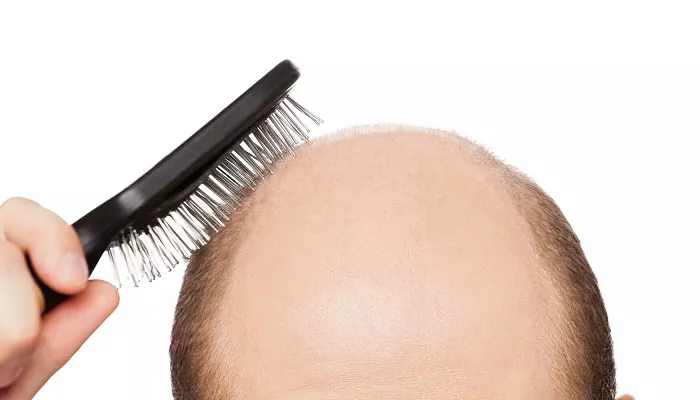For centuries, humankind has searched for a reliable cure for hair loss—from ancient Egyptian potions made of donkey hooves to Native American yucca juice. Despite the enduring demand, no solution has proven universally effective—until now, perhaps. A new scientific development out of UCLA could mark a turning point in the battle against baldness, offering fresh hope for millions.
Researchers at the UCLA Broad Stem Cell Research Center have identified a novel molecule, PP405, which appears to effectively stimulate dormant hair follicles. Early human trials show promising results, potentially heralding a new era in hair health solutions.
A Common Yet Elusive Condition
Hair loss affects more than 50% of men and 25% of women by age 50, often triggered by genetics, aging, stress, or medical treatments. Until now, only two FDA-approved medications—minoxidil (Rogaine) and finasteride (Propecia)—have offered modest results, working for just a fraction of users.
“Both are limited in efficacy and only improve hair in a portion of patients,” explains Professor William Lowry, a leading scientist on the UCLA team. Other options like PRP injections, red light therapy, or hair transplants often lack consistent success and can come with high costs.
The Science Behind PP405
The UCLA team, including Professors Heather Christofk and Michael Jung, focused on awakening the body’s own hair follicle stem cells. PP405 targets a newly discovered metabolic pathway that, when activated, triggers these dormant cells to produce new, robust terminal hair—the thicker, darker hair most desired by those experiencing hair loss.
In a 2023 clinical trial in Orange County, nightly topical application of PP405 yielded statistically significant hair growth in just one week. Unlike previous methods, it showed no damage to existing follicles, boosting both safety and optimism.
“We found that promoting this metabolism can accelerate stem cell activation, which makes new hairs grow,” Lowry said. “We developed compounds that effectively drive this effect.”
From Lab to Market
To move the discovery toward public use, UCLA facilitated the launch of Pelage Pharmaceuticals, which secured $16.4 million in funding—including backing from Google Ventures. The company is now preparing larger trials and working toward FDA approval.
Lowry remains cautiously optimistic: “No such product will work for everyone. But our early trials are very encouraging, and more are underway.”
Emotional Toll and Growing Demand
Hair loss isn’t just a cosmetic issue—it carries emotional weight. “It can negatively impact people’s psychosocial health,” says Dr. Brendan Camp, a Manhattan dermatologist. With the increasing popularity of early cosmetic interventions, hair-loss treatments are fast becoming the “new Botox,” according to New York dermatologist Amy Spizuoco.
“People are beginning to treat hair loss at the first sign—preventatively—rather than waiting until it’s more advanced,” she noted.
This proactive mindset has spurred growth in specialized clinics and opened the door to advanced hair health tips, encouraging patients to combine traditional treatments like minoxidil and finasteride with emerging therapies like PP405.
A Hopeful Future for Hair Health
While experts advise starting with tried-and-tested options, the excitement around PP405 is growing. Dr. Camp recommends giving any treatment three to four months to gauge results and consulting board-certified dermatologists to ensure safety and effectiveness.
With continued research and rigorous trials, PP405 could soon redefine how we treat hair loss—potentially turning a centuries-old problem into a manageable, and perhaps reversible, condition.
As Lowry put it, “This mechanism is distinct from anything we’ve used before, and it could also be combined with existing treatments. We’re excited to offer a science-backed solution that could truly improve people’s lives.”
For those struggling with thinning hair, the long-awaited answer may finally be within reach.
Related Topics:
- Trump Greeted by Traditional Hair-Flipping Dance During UAE Visit
- “It Changed How I Saw Myself”: Real Moms Open Up About Postpartum Hair Loss
- Doctor Clarifies: Does Hair Gel Cause Hair Loss?


